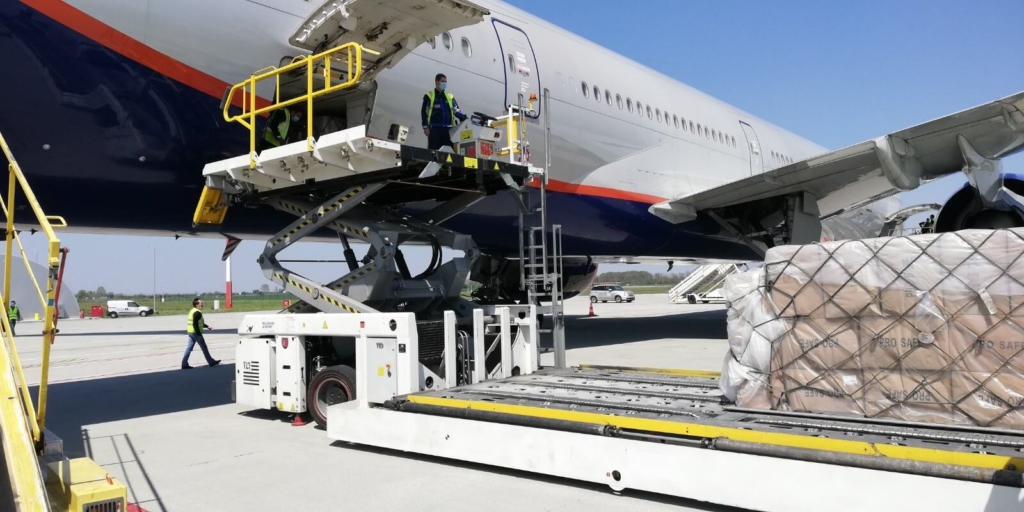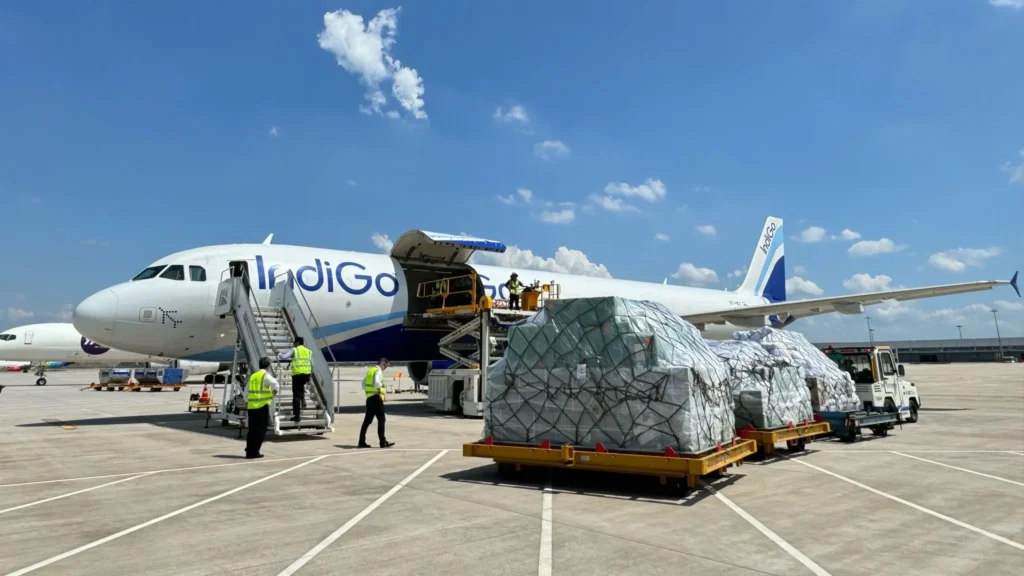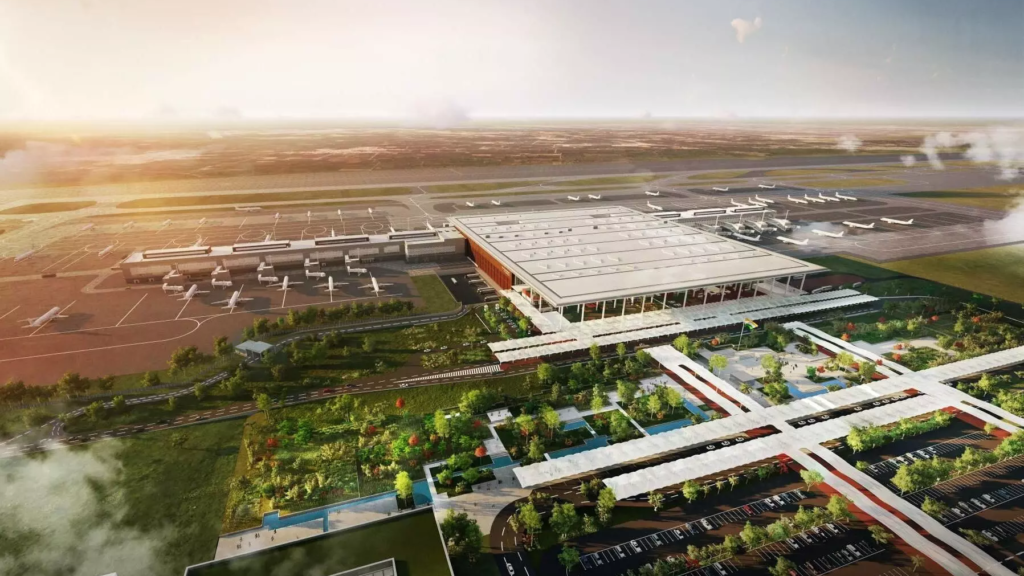
ULWE- Navi Mumbai International Airport (NMI) initiates strategic discussions with DHL Aviation and FedEx to establish a major cargo hub, leveraging its proximity to Jawaharlal Nehru Port.
The airport, scheduled to launch passenger operations in May 2025, positions its available slots and location as key advantages for cargo operations, Hindu Businessline reported.
 Photo: Cargo Partner
Photo: Cargo PartnerNavi Mumbai Airport Cargo Hub
The airport’s master plan dedicates 29 hectares to cargo facilities, including ten freighter stands and an automated terminal, projecting an annual cargo handling capacity of 2.6 million metric tonnes.
Airport officials confirm ongoing negotiations with global logistics giants and have designated space for a dedicated cargo terminal specifically designed for a hub airline.
FedEx reveals active plans to establish an international cargo hub in India with Businessline, aiming to enhance connectivity between South Asia, Europe, and the United States. The company engages with government authorities to address regulatory requirements for hub establishment, though the final location remains under evaluation.
The proposed cargo hub aims to facilitate both point-to-point transport and goods transshipment for domestic and international markets. While domestic cargo operations will commence alongside passenger flights, international cargo services will follow in subsequent phases.
FedEx emphasizes the hub’s strategic importance in strengthening India’s trade ecosystem and accelerating goods movement. The company maintains ongoing discussions to select a location aligning with its growth strategy, promising future announcements regarding specific development plans.
 Photo: Mark Sutch, Chief Commercial Cargo Officer
Photo: Mark Sutch, Chief Commercial Cargo Officer Indian Air Cargo Industry Growth
The Indian air cargo sector demands streamlined processes and security regulations to enhance competitiveness against regional competitors. Current requirements, such as mandatory cargo rescreening, increase operational costs and processing times, diminishing the efficiency of Indian airports and airlines.
FedEx’s discussions with government authorities focus on crucial regulatory modifications, though specific details remain undisclosed. These regulatory adjustments align with the industry’s ambitious target to expand annual airport cargo throughput to 10 million tonnes by fiscal year 2030.
Indian airports demonstrate steady growth in cargo handling, processing 3.36 million tonnes in fiscal year 2024, marking a 7 percent increase from the previous year.
International cargo operations showed particularly strong performance with a 9.7 percent growth, while domestic cargo movement increased by 3 percent.
 Photo: Noida International Airport
Photo: Noida International AirportNoida Airport’s Largest Cargo Hub Ambitions
Alongside the Navi Mumbai International Airport, Noida International Airport (DXN) also has ambitious plans to develop the largest cargo hub in India.
Uttar Pradesh Finance Minister Suresh Kumar Khanna allocated ₹1,150 crore to the Noida International Airport project on February 5, 2024, advancing South Asia’s largest planned airport development.
This investment aligns with India’s national target to achieve 10 million tonnes of air cargo capacity by 2030, addressing the current dominance of international carriers who handle 90 percent of India’s international cargo.
The airport’s Chief Operating Officer, Kiran Jain, emphasizes its strategic position near major industrial clusters in Western Uttar Pradesh and the National Capital Region. These clusters encompass electronics, textiles, automotive, pharmaceuticals, and perishable goods manufacturing. A dedicated cargo road access on the airport’s eastern side enhances its logistics capabilities.
Yamuna International Airport Private Limited, a Zurich Airport International subsidiary, leads the development of a Multi-Modal Cargo Hub. AISATS oversees this hub, which combines a 30-acre Integrated Cargo Terminal with a 57-acre Integrated Warehousing & Logistics Zone.
Phase 1 of the cargo terminal targets completion by late 2024, establishing an initial annual capacity of 250,000 tonnes through domestic, international, and express courier facilities.
Future expansions will increase capacity to two million tonnes, incorporating a specialized coolport for temperature-sensitive cargo. Supporting infrastructure includes a trucking center with driver amenities.
The integrated logistics project enters its design phase, incorporating facilities for pallet assembly, customs-bonded storage, and an e-commerce logistics park. This development responds to increasing cargo handling demands from domestic airlines’ fleet expansion plans, positioning Noida International Airport as a crucial node in India’s air cargo network.
Stay tuned with us. Further, follow us on social media for the latest updates.
Join us on Telegram Group for the Latest Aviation Updates. Subsequently, follow us on Google News
PHOTOS: IndiGo Airlines First Flight Lands at Navi Mumbai Int’l Airport | Exclusive
The post Navi Mumbai Airport Eyes Major Cargo Hub with FedEx and DHL appeared first on Aviation A2Z.








